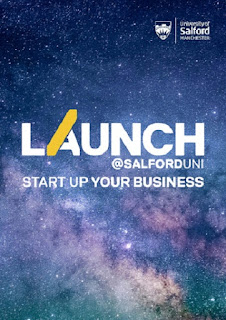I've recently published my 13th annual social impact report on myself - and as with previous years, continued to 'evolve' the framework by adding further indicators (specifically, in relation to how far I'm adopting working practices that reduce environmental impact).
The framework I've developed is overall designed to reflect my values, but I'm wondering how far I should include additional indicators relating to 'grace', and more specifically, 'forgiveness'...
You see, businesses of all types will, at some point, face the prospect of having to deal with bad debt - a customer or client that either refuses to pay, or whose venture has become insolvent. In such circumstances, conventional wisdom decrees that we (as the people the debt is owed to) enact recovery processes: debt collection agencies, applications for court orders, striking them off our Christmas card lists, and such like.
But sometimes, the people we've worked to support and now can't make good on the payments we've agreed, haven't made a conscious or deliberate choice to run their businesses into the ground, or to happily walk away from their dreams and ambitions with little care for the consequences. They're just as, if not more, upset than we are that circumstances have played out as they have and are simply trying to minimise the fall out (albeit that usually means by 'doing an ostrich' and hoping it all goes away by itself...).
In such instances, grace would seem to require that we at least consider the option of forgiving them their debt - not as a 'carry on and mess up other businesses' type approach, but rather as a measured and reflective conversation about how working relationships have been bruised, and helping all involved understand the cost that such a forgiveness of debt will entail (but the benefits it could also offer in the longer-term to all concerned as well).
As a sole trader, my experiences of exercising grace in this way is 'quite painful' as I've no larger company or wider team of colleagues to help soften the hit of not now receiving the income I'd anticipated. I also need to work at least doubly hard to find additional work to replace the earnings I've lost and budgeted to receive, (earnings that help sustain my family, home, and other commitments).
So the question I'm grappling with is - when I exercise grace in this way, should I record and report it, as I do with other workings out of this value (such as the extent to which I currently report on the pro bono support I've given to various people and groups).
Would such open reporting simply encourage a culture of clients 'crying off' when they see that I'd be willing to forgive them their debt, or would it mean we can all start to have more grown-up and mature adult conversations about money, and the way in which we recognise and have responsibility for others through ensuring that we pay them what we owe?



